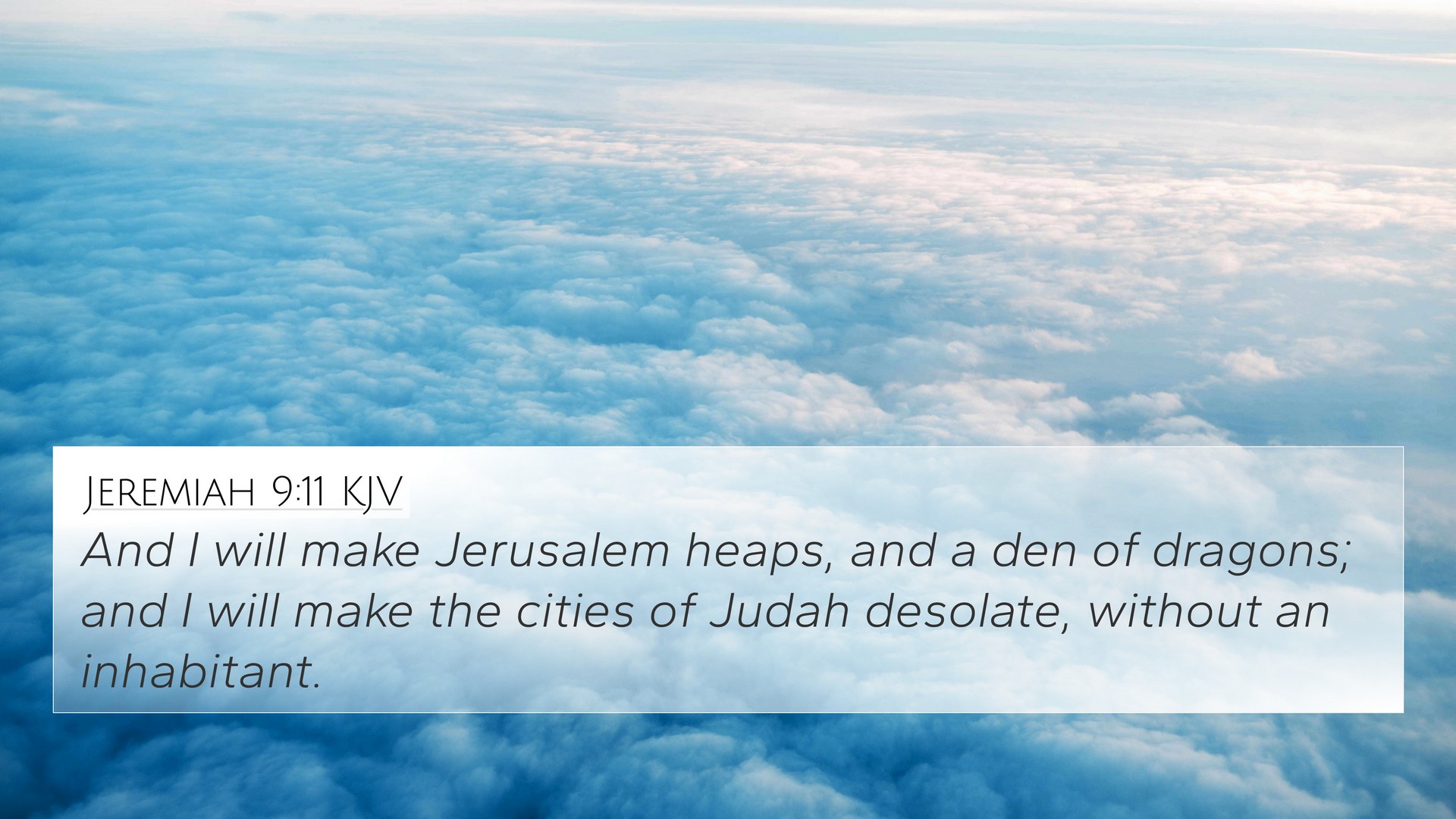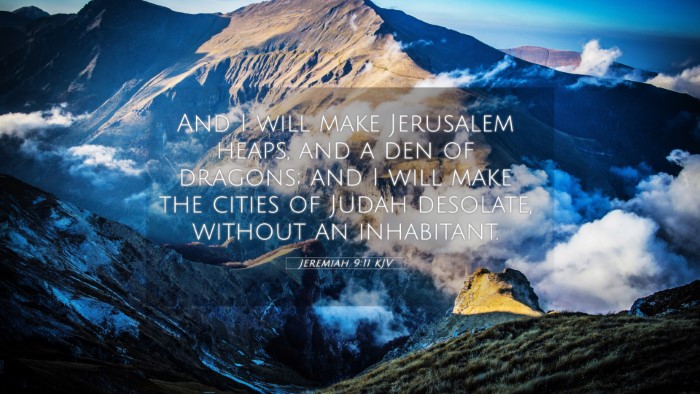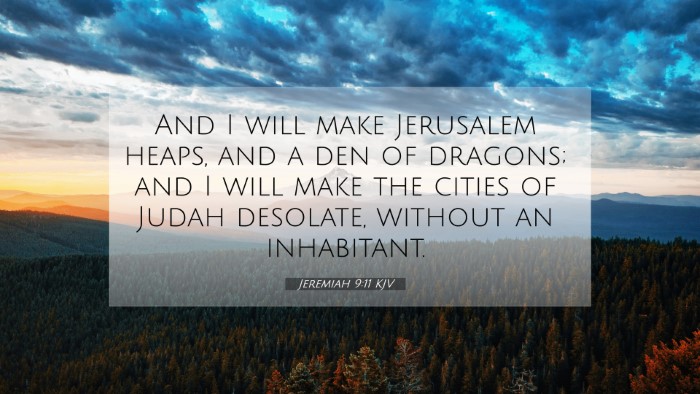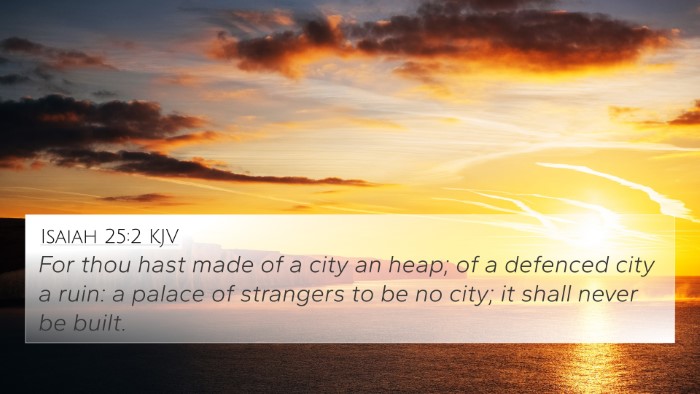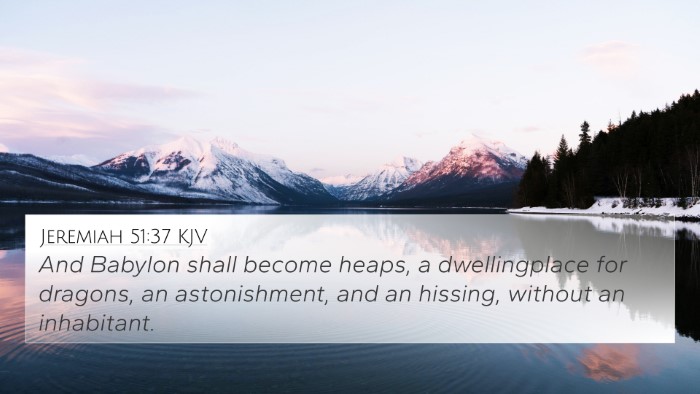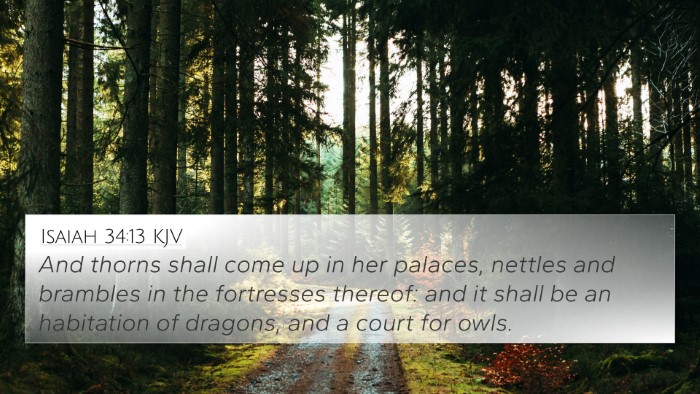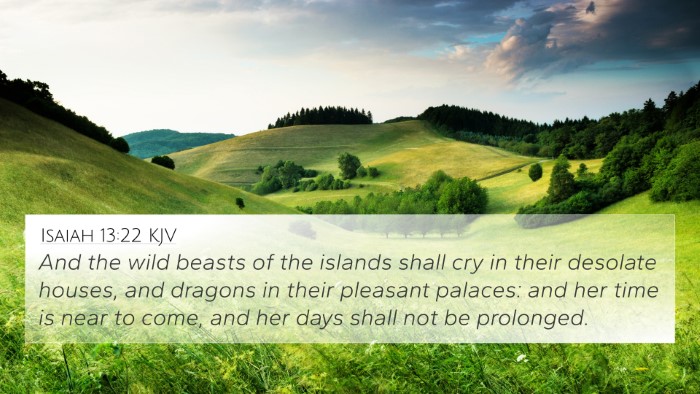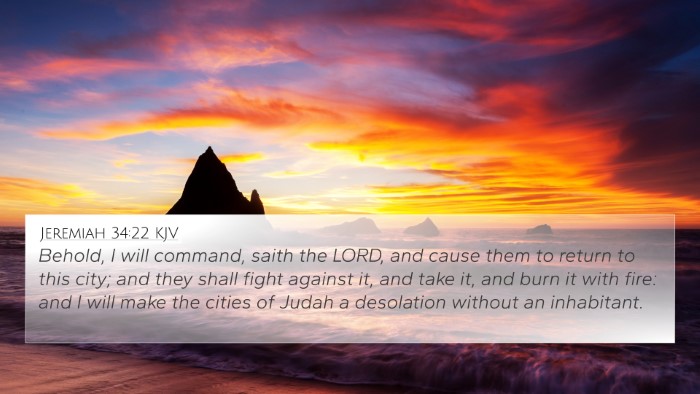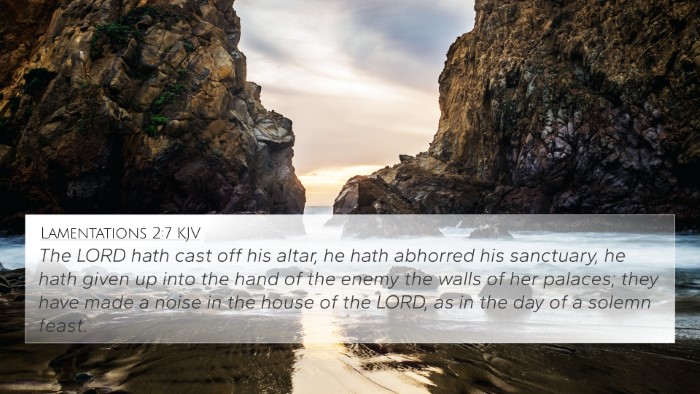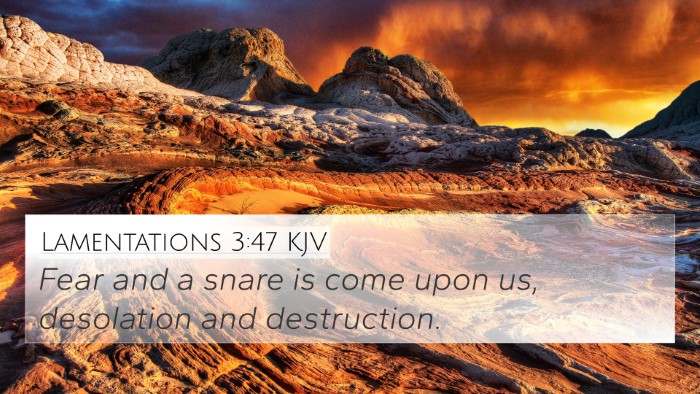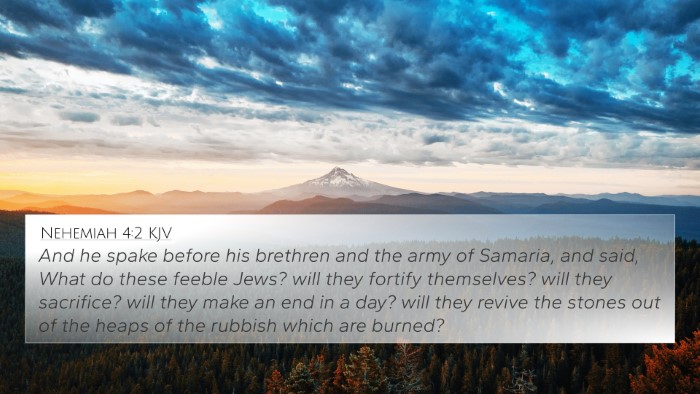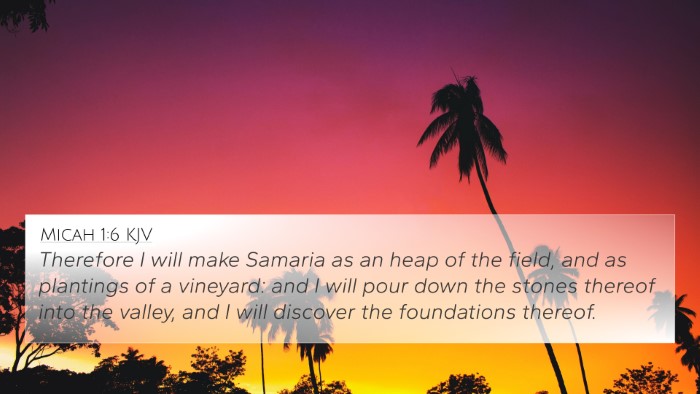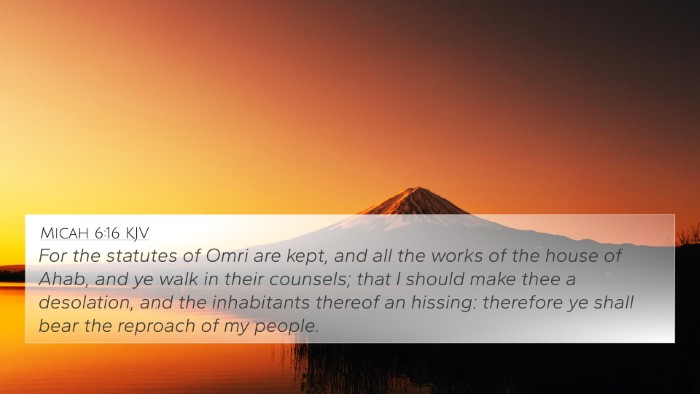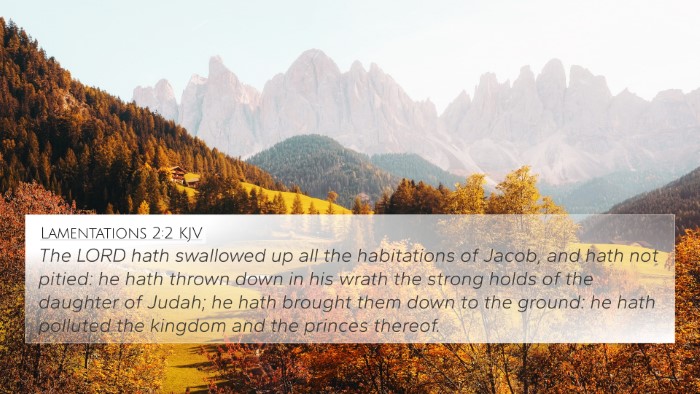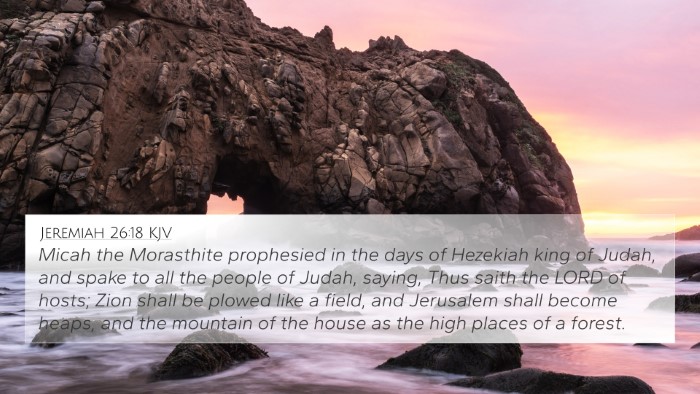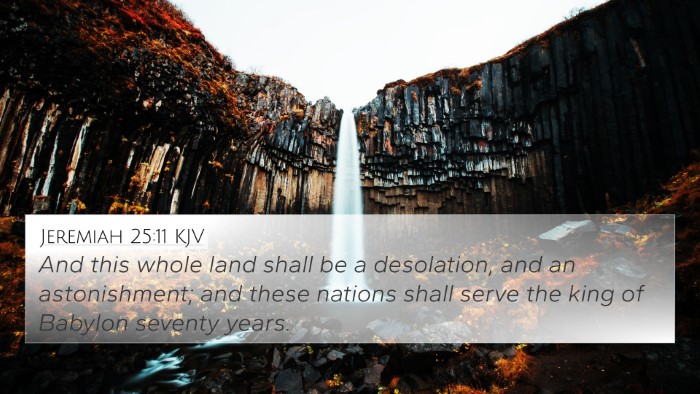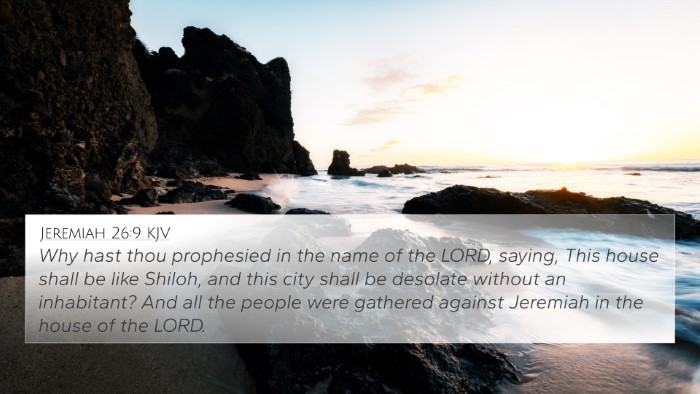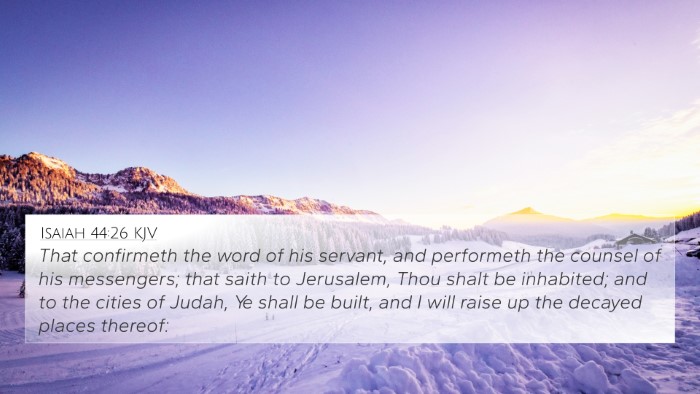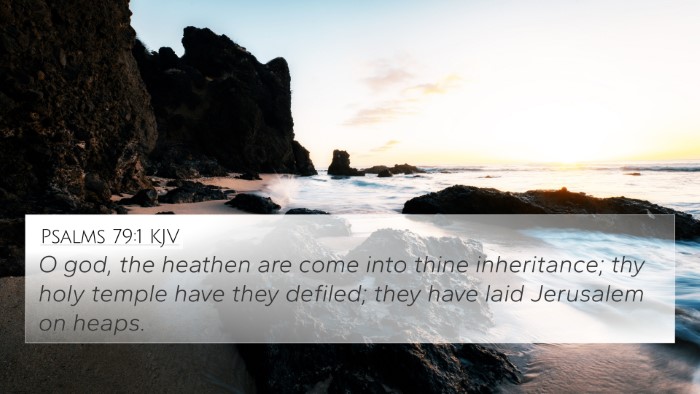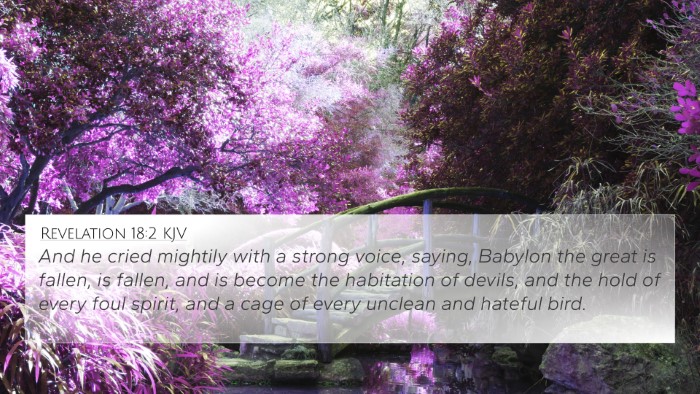Understanding Jeremiah 9:11
Bible Verse: Jeremiah 9:11 - "And I will make Jerusalem heaps, and a den of dragons; and I will make the cities of Judah desolate, without an inhabitant."
This verse speaks to the profound desolation that would befall Jerusalem and the cities of Judah as a consequence of the people's sins and disobedience to God. The imagery of "heaps" and "a den of dragons" conveys a stark picture of destruction and abandonment.
Insights from Public Domain Commentaries
The following insights, compiled from Matthew Henry, Albert Barnes, and Adam Clarke, offer a deeper understanding of this verse:
-
Matthew Henry
Henry emphasizes the severity of God's judgment on Jerusalem for its idolatry and sins. He describes the state of desolation as a well-deserved punishment, reflecting God's holiness and justice. He notes that the comparison to a "den of dragons" signifies a place of terror and abandonment, highlighting the absence of life and prosperity.
-
Albert Barnes
Barnes elaborates on the historical context of the passage, suggesting that the prophecy reflects the inevitable consequence of a nation that turns away from God. He points out that the "heaps" symbolize ruins that once were rich and flourishing cities, now left in despair. His commentary stresses the spiritual lesson on the seriousness of departing from God's ways and the resulting judgment.
-
Adam Clarke
Clarke interprets the desolation of Jerusalem as a necessary aspect of God's plan to bring His people back to repentance. He discusses how the language used—particularly the metaphor of "dragons"—illustrates an environment stripped of God's favor. Clarke highlights that this serves as a warning against the dire consequences of persistent sin and rebellion against divine law.
Key Themes and Connections
Jeremiah 9:11 explores profound themes of judgment, repentance, and God’s sovereignty. Several Bible verses resonate with these themes, establishing connections between Scriptures that illustrate God's judgment and His desire for repentance:
- Isaiah 1:7 - "Your country is desolate, your cities are burned with fire; strangers devour your land in your presence, and it is desolate, as overthrown by strangers." This verse parallels the destruction foretold in Jeremiah.
- Lamentations 3:1 - "I am the man who has seen affliction by the rod of His wrath." Reflecting on personal and national suffering due to sin, as depicted in Jeremiah 9:11.
- Ezekiel 36:33 - "Thus says the Lord God: On the day that I cleanse you from all your iniquities, I will also enable you to dwell in the cities, and the ruins shall be rebuilt." This offers a connection to hope and restoration following judgment.
- Micah 3:12 - "Therefore because of you, Zion shall be plowed like a field, Jerusalem shall become heaps of ruins, and the mountain of the temple like the bare hills of the forest." This parallels the destruction theme in Jeremiah.
- Matthew 23:38 - "See! Your house is left to you desolate..." Jesus refers to the judgment upon Jerusalem, linking back to Jeremiah’s warnings.
- Revelation 18:2 - "And he cried mightily with a loud voice, saying, 'Babylon the great is fallen, is fallen, and has become a dwelling place of demons, a prison for every foul spirit...'" This passage echoes the desolation described in Jeremiah.
- Joel 1:10 - "The field is wasted, the land mourns; for the grain is ruined, the new wine is dried up, and the oil fails." This illustrates the agricultural and economic devastation associated with judgment.
- Luke 19:44 - "And level you, and your children within you, to the ground; and they will not leave in you one stone upon another, because you did not know the time of your visitation." Connects to the consequences of failing to recognize God’s call.
Thematic Connections
By using tools for Bible cross-referencing, one can see the interconnectedness of these scriptures. The themes of destruction due to sin and the need for repentance weave a complex tapestry throughout the Bible, emphasizing God’s consistent message of justice and the opportunity for redemption.
Comparative Bible Verse Analysis
To fully appreciate the severity implied in Jeremiah 9:11, one can engage in a comparative analysis of the Old Testament prophets and the New Testament teachings. The prophecies of doom intermingle with messages of hope. For instance, the Book of Jeremiah frequently addresses the consequences of disobedience, while the teachings of Jesus underscore the centrality of repentance and God's grace.
Furthermore, the use of a Bible concordance or Bible cross-reference guide can greatly enhance one's understanding. These resources enable an individual to trace thematic Bible verse connections and discover links between different books of the Bible, revealing the intricate web of God’s narrative and His covenant with humanity.
How to Use Bible Cross-References
The ability to identify connections between Old and New Testament texts enriches one’s study and interpretation of specific verses. For instance, exploring how to find cross-references in the Bible helps readers draw meaningful parallels and fully grasp the significance of God's word through centuries of writing. This practice is essential for cross-reference Bible study, as it opens up dialogue between the Testaments, revealing layers of meaning in scripture that may be overlooked without the connections.
Conclusions on Jeremiah 9:11
In summary, Jeremiah 9:11 serves as a stark reminder of the consequences of sin while also inviting deeper reflection on God's desire for repentance and restoration. Through exploring cross-references and engaging in scriptural dialogue, one can find a wealth of insight and application for current faith and practice.
